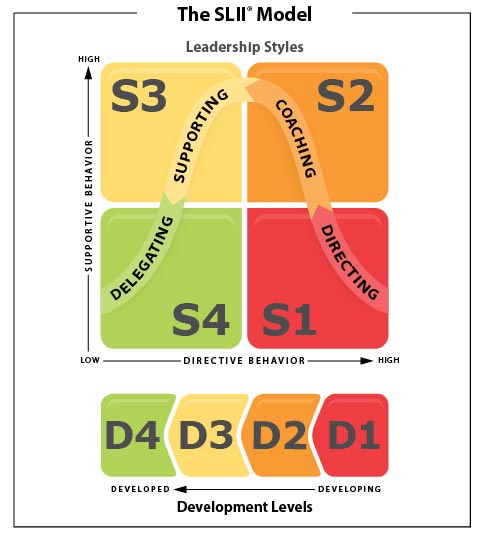
Done Well, Performance Management is a Partnership
Research indicates there are significant gaps between what employees expect from their leaders, and what they actually experience at work. The gap is occurring for both new managers and experienced leaders. Unfortunately, a situational approach to management is only being employed by 54% of leaders.
That means that 50% of the time, leaders are using the wrong leadership style to meet the needs of their people.
Left unaddressed, these situational leadership gaps represent a drain on overall organizational vitality through decreased performance, engagement, and intention to stay.
How to Help Managers Be More Purposeful
Developed by Ken Blanchard, SLII® is a situational approach to management process that helps managers be more purposeful and intentional in their conversations with people. This helps to create a high performance culture where people are clear and aligned on objectives so that they can achieve organizational goals faster.
Done right, managers and direct reports learn how to speak a common language that builds employee and manager trust and a sense of partnership. Leaders learn how to give people the right amount of direction and support for each task or goal they face at the exact time they need it.
Leaders also learn how to adjust their style to fit the situation.
Too Much Direction is Just as Bad as Too Little Direction
The Best Leaders are Situational Leaders
We know from research asking hundreds of thousands of people that the best leaders are situational leaders — they flexibly match each person’s needs for direction and support with the right leadership style for that person, in that moment, on a specific goal or task.
Top 3 Foundational Skills for a Situational Approach To Management
Most important, situational managers know that leadership is not something you do TO people; it’s something you do WITH people. The three foundational skills managers learn are:
The Bottom Line
Great managers aren’t born — they’re trained. Being a great manager is all about giving people the exact leadership style they need — when they need it.
To learn more about taking a more situational approach to management, download 7 Immediate Management Actions to Create Alignment with Goals
Explore real world results for clients like you striving to create higher performance